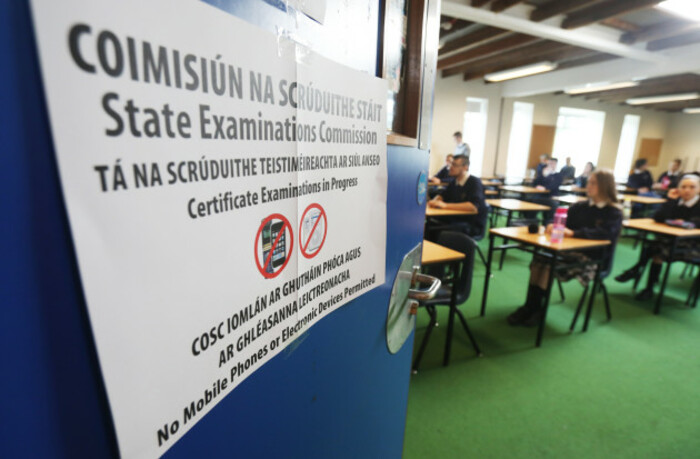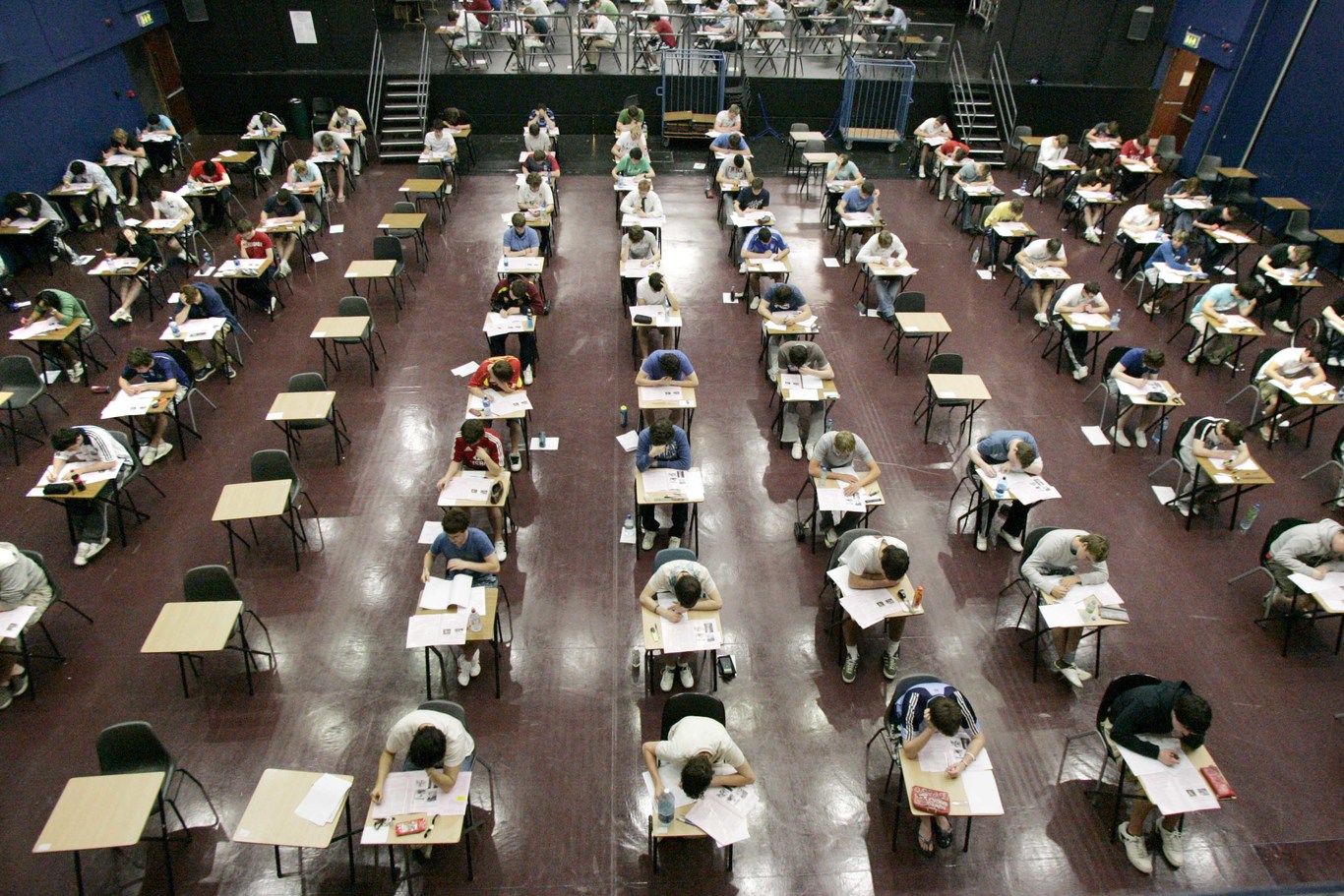Why the Leaving Cert is hurting Ireland's economy
A final, high-stakes exam kills any appetite for lifelong learning.
IT HAS BEEN a big week for the more than 55,000 Leaving Certificate students who received their exam results.
Their determination, grit and hard work to get through what is now considered a national rite of passage must be acknowledged and commended.
And as many of these students now mull over options for their next stage in life, it is important to reflect on the educational value of the Leaving Certificate experience and its role in preparing students for their future.
The world of work is changing. Rapid digitalisation, technological advancement and globalisation are resulting in jobs and careers being transformed at an accelerating pace.
Over the last decade, our understanding of the typical worker has evolved and the concept of a job-for-life no longer exists.
We have not yet imagined some of the jobs that will be available and the specific skills they will demand.
But we do know that they will require higher-order thinking skills such as creativity, problem-solving, critical thinking, coupled with appetite for continuous learning.
Does the Leaving Certificate prepare young people for a future where we know the only constant is change?
A final, high-stakes exam, which is predominately based on rote learning and high levels of information recall, leaves very little room for students to think critically, engage analytical skills and develop greater interpersonal skills.

It also has a very dramatic effect on future educational opportunities and job prospects, which can only increase pressure and further limit the scope for creativity.
In its current form, it is doubtful that the Leaving Certificate is in tune with the future needs of Irish society and its economy.
Innovative education
Ireland currently lags behind other European countries for its participation in lifelong learning, with a low participation rate of 6.7% compared to the European average of almost 11%.
It is eminently reasonable to suggest that the intensity and focus of a final examination as the main mode of assessment kills the appetite for ongoing learning.
It is at this very stage in our lives that we need an education system that cultivates a love of learning, a desire to be inquisitive and innovative.
The future of education should also be innovative and creative; enabling and empowering our best teachers to teach to the students rather than teach to test, recognising that people learn in different ways.
To support this future, Ireland needs an education a system that focused on formative learning, with multiple assessment modes, progression paths and values experiential learning.
The National Council for Curriculum and Assessment (NCCA), the state agency that advises the Minister for Education and Skills on curriculum content and assessment methods, recently started a major review of the school senior cycle and the Leaving Certificate.
The NCCA’s international research highlights that many countries have a variety of learning pathways that lead to qualifications and certifications that can be used for different purposes.
 Education Minister Richard Bruton
Education Minister Richard Bruton
It shows that many countries have moved way from a one-size-fits-all approach to state examinations.
The NCCA is also conducting detailed research with 40 secondary schools to establish their perspective on what students need to participate in an ever-changing world. This will inform a broader consultation process with pupils, teachers, parents and other stakeholders, such as business.
This inclusive consultation opportunity cannot be squandered. Ireland is ready and in need of a strong debate on developing a senior cycle and a Leaving Certificate examination that is fit for purpose.
The ability of our young people to fulfil their potential, be successful in their chosen careers and fully engage as active citizens depends on the success of these reforms.
Reform
Curriculum reform is not new territory. Although it is a diluted version of the original reform proposal, the reformed junior cycle curriculum offers a template for the kind of change needed in an era where the ability to memorise facts and figures is less important.
The new curriculum sets out to embrace the kind of modern teaching, learning and assessment methods of a contemporary, relevant and innovative education system.
The programme of learning encourages students to develop resilience, strong interpersonal skills, effective communication, self-awareness and self-motivation and provides a teaching and learning experience which extends beyond the traditional academic examination.

Ireland’s education system must build on this and progress it forward. We now have an opportunity to develop a senior-cycle learning environment where students take a greater responsibility for their own learning and decision-making.
This environment must incorporate a well-considered transition year programme that offers students multiple opportunities to engage in curricular experiences with the local community and businesses; a targeted careers service to guide students to make informed decisions about their future; and a comprehensive programme of learning and assessment that is relevant for the 21st century.
Regardless of their final results, the current crop of Leaving Certificate students should remember over the coming days that there are a wide variety of opportunities now available in higher and further education, training and employment, if they are adaptable and willing to learn.
The Learning Certificate can be a catalyst for a full and rewarding life, but only if it can light the spark for lifelong learning.
Claire McGee is the senior executive for innovation and education policy at Ibec.






